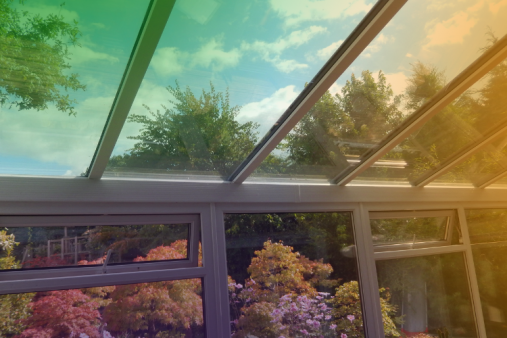Thinking About Adding a Roof Lantern?
Roof lanterns bring natural light and style to flat roofs, extensions, and orangeries. They make kitchens brighter, create a sense of space, and can boost a property’s resale value.
But before you install one, it helps to understand what affects the total roof lantern installation cost — and how to get the best value in 2025.
How Much Does a Roof Lantern Cost in the UK?
The average cost to supply and install a roof lantern in 2025 is around £1,800 to £4,000, though prices can range from £1,000 to over £9,000 for large, bespoke, or complex designs.
Small uPVC lanterns are the most affordable, while large aluminium or timber lanterns with opening vents and bespoke glazing are at the higher end.
These prices are drawn from five independent 2025 sources, including Checkatrade, MyJobQuote, GFD Homes, Value Doors, and National Plastics.
Roof Lantern Cost Table 2025
|
|
|
|
|
|
|
|
|
|
|
|
|
|
|
|
|
|
|
|
|
|
|
|
|
|
|
|
|
|
|
|
|
|
|
Average installation time: 2–3 days
Average labour cost: £200–£300 per day (higher in London & South East)
Typical warranty: 10–20 years depending on manufacturer
What Affects Roof Lantern Installation Costs?
1. Size and Design
Larger lanterns cost more — not just for the materials, but for the extra time, trimmers, steels, and finishing required. Complex or multi-part designs add to installation time.
2. Frame Material
- uPVC: Cheapest option, durable but bulkier frames.
- Aluminium: Slim sightlines, modern look, mid-range price.
- Timber: Premium choice for traditional or heritage homes, but requires more maintenance.
3. Glazing Type
High-performance glazing adds cost but improves comfort and energy efficiency. Options include:
- Double or triple glazing
- Low-E or solar-control glass
- Self-cleaning coatings
- Laminated safety glass
4. Fixed vs. Opening Lanterns
- Fixed lanterns are cheaper and simpler to install.
- Opening lanterns (manual or electric) cost more due to added mechanisms, wiring, and sealing work.
- Add around £250–£350 per vent for electric openers.
5. Structural Work
If a new opening needs to be cut, or your roof deck is weak, expect extra costs for:
- Trimmers and supports
- Steels or RSJs
- Roof strengthening
- Replacement of flat roof sections (flat roof replacement typically £2,500–£7,500)
6. Access and Scaffolding
Hard-to-reach roofs or two-storey installs often need scaffolding or lifting gear.
Add £400–£1,000+ depending on scope and region.
7. Finishing Touches
Finishing often adds hidden costs:
- Internal plastering and decorating
- Electrical work (lighting, power to vents)
- Roof lantern blinds (manual or electric)
- Basic blinds: £400–£700
- Electric blinds: £1,000–£3,000+
- Basic blinds: £400–£700
Real-World Cost Examples
|
|
|
|
|
|
|
|
|
|
|
|
|
|
|
|
|
|
|
|
How Long Does Installation Take?
- Standard lantern: 2–3 days
- Large/custom: up to a week
- Prep work: Add 1–2 days if you’re cutting into an existing roof
Always confirm timescales before work starts, as weather delays and access issues can affect completion.
Are Roof Lanterns Worth It?
- More natural light and improved ventilation
- Boosts property value and visual appeal
- Lower lighting bills and better energy efficiency (with quality glazing)
- Must be professionally sealed to avoid leaks
- Overheating can occur without solar control glazing on south-facing roofs
FAQs About Roof Lantern Costs
1. What’s the cheapest type of roof lantern?
uPVC lanterns are usually the cheapest — starting at around £1,000–£1,500 installed — though aluminium offers better aesthetics and durability for only slightly more.
2. Can I install a roof lantern myself?
DIY fitting isn’t recommended unless you’re experienced with flat roofing and glazing. Roof lanterns need correct structural support and weatherproofing — leaks or weak frames can cause serious damage.
3. Do I need planning permission for a roof lantern?
Usually not. Roof lanterns are generally permitted development if they:
- Don’t project more than 150 mm above the roof’s surface
- Are not higher than the highest part of the roof
- Are made from similar materials to the existing building
Listed buildings or conservation areas may require approval.
4. How long does a roof lantern last?
Modern aluminium or uPVC roof lanterns can last 25–30 years+ with minimal maintenance. Regular cleaning of gutters and seals helps prevent leaks.
5. What’s the best way to save money?
- Choose a standard-size aluminium lantern — best balance of cost and durability
- Get at least three fixed-price quotes
- Combine installation with other roofing work (e.g. flat roof replacement)
- Avoid bespoke shapes unless necessar
Key Takeaway
In 2025, a typical roof lantern installation in the UK costs around £1,800–£4,000, with small units from £1,000 and high-end bespoke designs reaching £9,000+.
Prices vary depending on size, material, glazing, structure and finish — but a well-installed lantern can transform a home’s light and feel, adding both comfort and value






